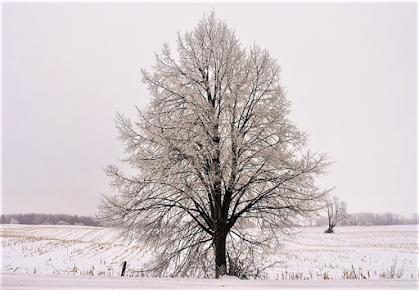Snow Melt is Stormwater Too!
The beauty that comes with a fresh
snowfall is unmatched. However, it doesn’t take long in Michigan for the
temperatures to fluctuate and create rapid snow melt. Just like when rain falls
during the rest of the year, melting snow turns into stormwater runoff too!
Just as heavy rains wash across our yards, driveways, and
parking lots, melting snow does the same thing. While washing across these
surfaces, the melting snow picks up any pollutants it encounters and then is
transported UNTREATED through storm drains into our nearby rivers, ponds, and
lakes. So, any trash, oil, gasoline, or salt you notice on your driveway or
local store parking lot can be swept away with melting snow and deposited
directly into nearby water.
Because of the time of year, snow melt has
its own unique stormwater problems. The ground is often frozen at the surface,
so the melting snow cannot infiltrate the ground like rainwater can. This
creates a higher chance of flooding, either on your property or throughout the
community. In either case, this water is picking up all sorts of debris and
pollution – like those specific to winter months, such as salts and deicers.
Eventually this melt water will reach nearby surface water carrying all the
pollutants it has accumulated. Once in surface water, these pollutants lower
water quality, create hazardous conditions for aquatic life, and can cause
problems for those who rely on this water for drinking, irrigating, or
recreational use.
We have put together some tips to
better manage snow melt and protect water quality:
- When piling snow, it is best to place snow piles on areas where they will have the greatest opportunity to soak in instead of turning into stormwater runoff. Pile your snow in areas where you do not have ponding in the spring, in well vegetated areas, and away from waterbodies, or your well.
- Keep your downspouts clear and direct them away from impervious surfaces such as driveways or sidewalks.
- Make sure to keep your nearby storm drains clear of debris – and do not pile snow over these areas! This will help reduce the chance of flooding if storm drains are clear.
- Ensure your vehicle is ready for winter to help prevent leaks that may be carried off in snow melt events.
- Wash your car at a commercial car wash where the wash water is treated; This prevents any salt, or heavy metals that are washed off your vehicle from entering storm drains.
- Use salt and deicers sparingly and according to their label. Any excess should be swept up to prevent it from being carried off with snow melt.
- Pick up any debris that could be washed away with snow melt. This includes any plastic debris, animal waste, garbage, etc.
- Pay close attention to areas that are eroding during snow melt. During the spring and summer these areas should be improved to minimize erosion for next winter.
Keep these tips in mind this winter. We can all do our part to protect water quality!
This
information is part of a larger project funded by EGLE under the NPS Control
Fund and Section 319 of the federal CWA.





Comments
Post a Comment